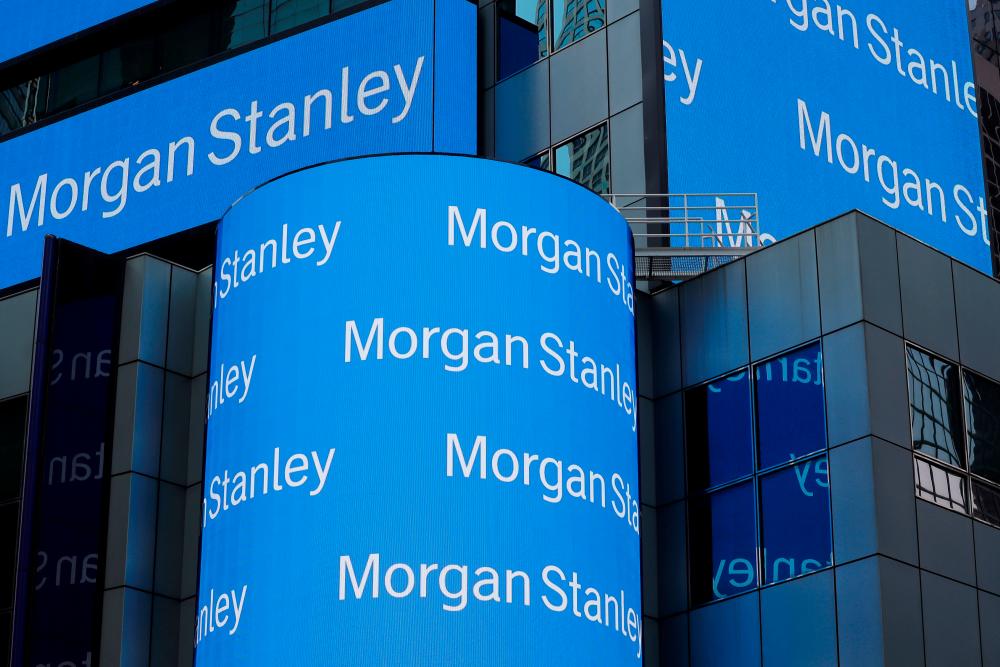NEW YORK: Morgan Stanley eased past Wall Street estimates for profit, wrapping up mixed third-quarter earnings for big US banks that saw those focused on trading clocking big gains while retail banks took a hit from the pandemic.
Wall Street trading powerhouses Morgan Stanley and Goldman Sachs capitalised on a flurry of activity in financial markets as clients bought and sold stocks in response to the coronavirus pandemic while many companies went public or raised fresh capital.
In contrast, banks with retail focus like Citigroup and Bank of America struggled due to historically low interest rates, provisions to cover bad loans and lower consumer spending.
Morgan Stanley’s net income applicable to common shareholders rose to US$2.60 billion (RM10.8 billion) in the quarter ended Sept 30, from US$2.06 billion a year ago. Earnings per share rose to US$1.66 from US$1.27 a year ago.
Analysts were looking for a profit of US$1.28 per share, according to IBES data from Refinitiv. Revenue also comfortably beat estimates, rising 16% to US$11.7 billion.
While Morgan Stanley's trading unit did not hit the record highs of the previous quarter, the latest performance was still good enough to help the bank handily beat expectations.
Revenue from Morgan Stanley's institutional securities division, which is the bank's largest breadwinner and houses its investment banking and trading businesses, rose 21% to US$6.06 billion.
Equities underwriting revenue more than doubled due to handsome fees from a number of high-profile initial public offerings such as Snowflake Inc, Royalty Pharma, KE Holdings Inc and Warner Music.
But revenue from underwriting bonds dropped from last year due to declines in loan issuances and muted dealmaking activity.
"Big investment banks are the easiest financial stocks to own because they have comparatively small loan portfolios (which are the biggest risk) but have upside earnings leverage to the currently active capital markets. Like GS yesterday (Wednesday), today's MS print proves out that thesis," said Oppenheimer analyst Chris Kotowski. – Reuters










